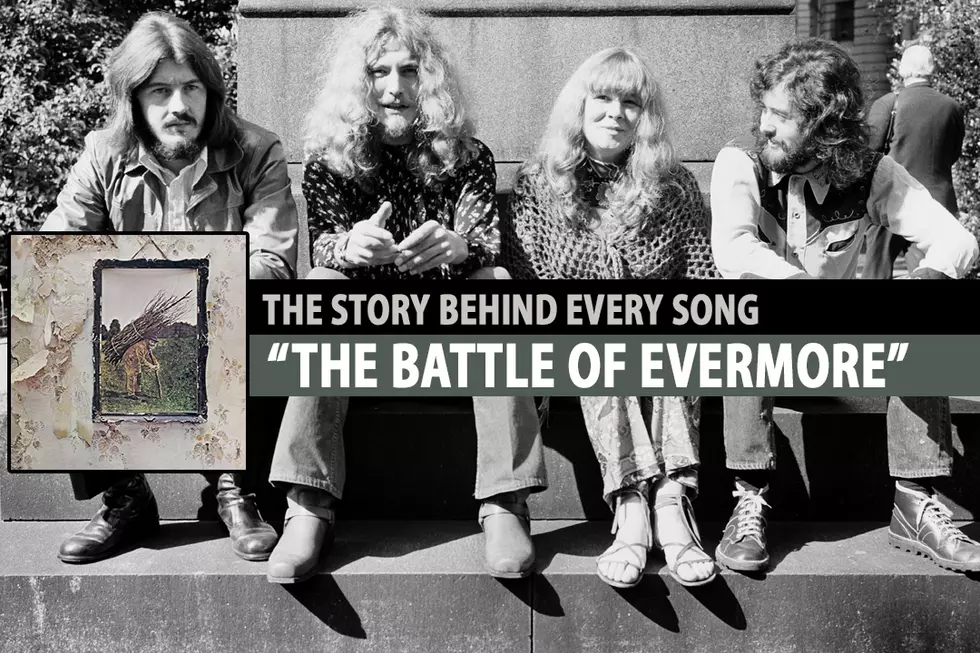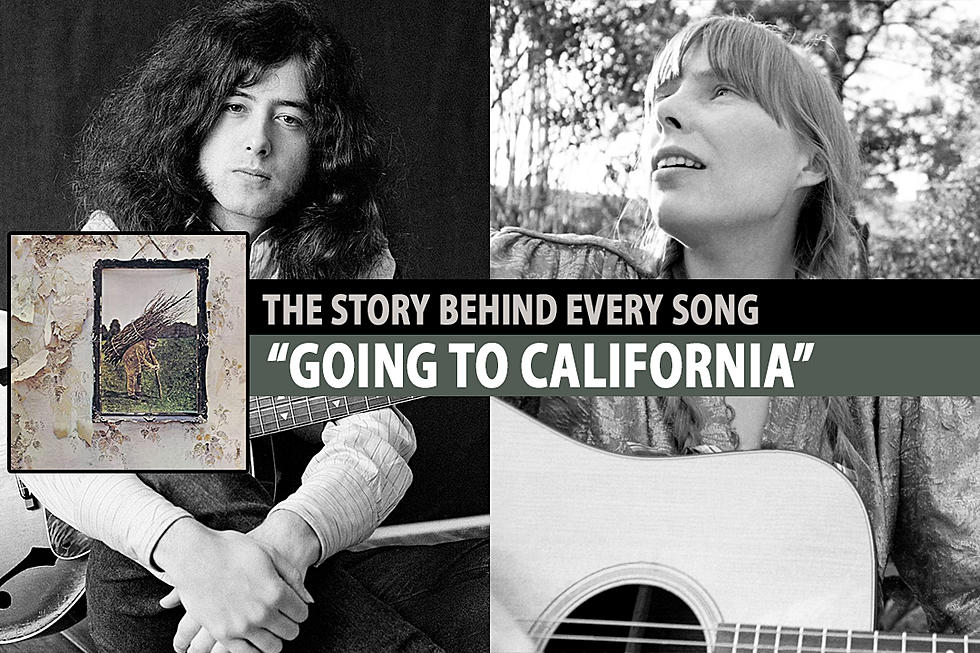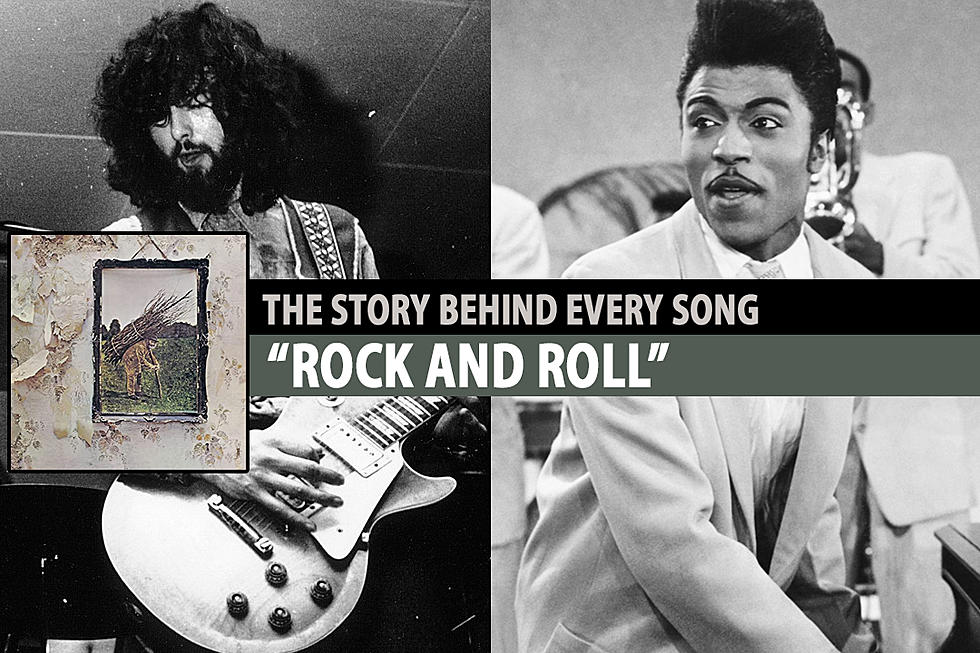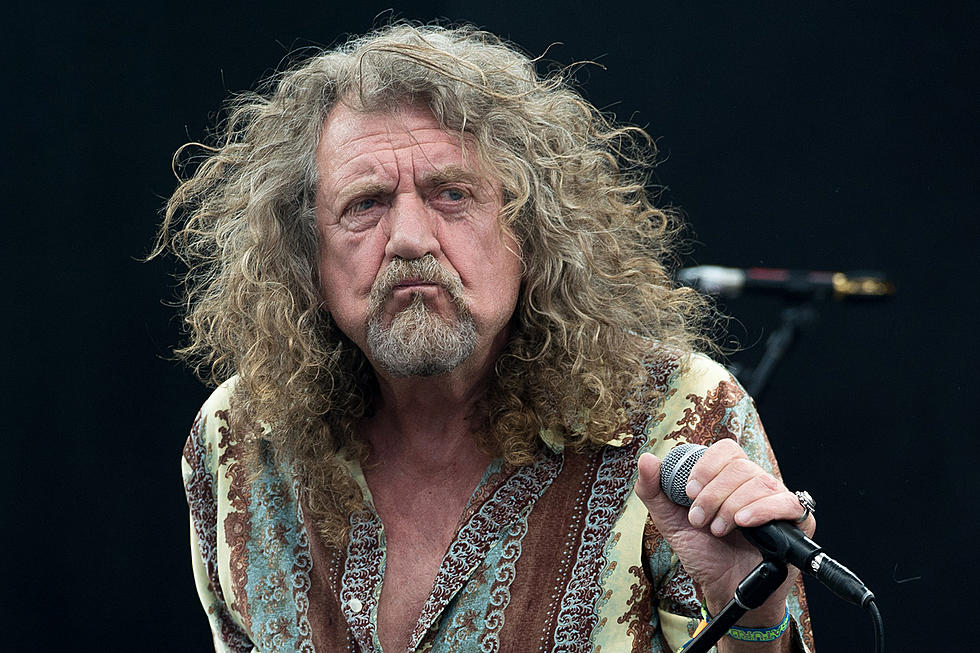
Why Led Zeppelin Added a Second Singer for ‘Battle of Evermore’
It makes sense that a band as prodigiously talented as Led Zeppelin would rarely enlist outside collaborators, but on their untitled fourth album — colloquially known as Led Zeppelin IV — the quartet broke tradition and recruited singer-songwriter Sandy Denny to record the only vocal duet in their catalog: the elegiac folk ballad "The Battle of Evermore."
Following the barnstorming one-two punch of "Black Dog" and "Rock and Roll," "The Battle of Evermore" brings IV's hard-rock inferno down to an ember with a folkloric tale of good vs. evil. Front man Robert Plant's lyrics were inspired by a book he was reading about the Scottish wars, and many fans have interpreted various lines as allusions to J. R. R. Tolkien's The Lord of the Rings, which the band previously referenced in Led Zeppelin II's "Ramble On."
In "Evermore," Plant sings of a "Queen of Light" and "Prince of Peace," embroiled in an epic battle against the "Dark Lord." As Plant narrates the battle, Denny — a member of the British folk-rock band Fairport Convention — serves as the town crier, interjecting in her haunting croon, "Dance in the dark of night / Sing to the morning light."
"You have two parts of the story," Plant explained on his Digging Deep podcast in 2019. "You have the fact of the impending sort of travesty, on one hand, and on the other hand, you have this call to unity. … I started to write it so that you had a section A that told the story that would be a disaster, and I had a section B, which was the triumph and the rallying. And I tried to sing them both. And it was a very, very insane idea."
Plant said his attempts to sing both parts of the song "didn't sound right in one voice, one pitch." So he and guitarist Jimmy Page sought assistance from Denny, who was part of the British folk scene that the members of Zeppelin admired. "It might be a little interesting to consider that at least Jimmy and I were running side by side with the Incredible String Band and with Roy Harper and with the Strawbs and with Fairport Convention, who were really something else back then," the singer explained.
Listen to Led Zeppelin's 'The Battle of Evermore'
Plant's observations echoed Page's comments about "The Battle of Evermore" in a 1977 interview with Trouser Press. "Well, it sounded like an old English instrumental first off," the guitarist said. "Then it became a vocal, and Robert did his bit. Finally we figured we'd bring Sandy by and do a question-and-answer-type thing."
Page revealed in the same interview that he came up with the music to "The Battle of Evermore" on the spot. "I just picked up [bassist] John Paul Jones' mandolin, never having played a mandolin before, and just wrote up the chords and the whole thing in one sitting," he said. "The same thing happened with the banjo on [Led Zeppelin III's] 'Gallows Pole.' I'd never played one before either. It was also John Paul Jones' instrument. I just picked it up and started moving my fingers around until the chords sounded right, which is the same way I work on compositions when the guitar's in different tunings."
To thank her for her contribution, Zeppelin gave Denny her own symbol — three downward-pointing equilateral triangles, forming an asterisk — on the inner sleeve of IV, which accompanied the four symbols that each band member chose to represent them. Plant and Denny's vocal duet was evidently as challenging as it was fruitful. "We started out soft, but I was hoarse by the end trying to keep up with him," Denny remarked.
Led Zeppelin only performed "The Battle of Evermore" live during their 1977 North American tour, with Jones singing Denny's parts and playing acoustic guitar while Page played mandolin. Page and Plant also recorded a live version of the song for their 1994 album No Quarter: Jimmy Page and Robert Plant Unledded, featuring Najma Akhtar on guest vocals.
In later years, Plant has frequently performed "The Battle of Evermore" with Alison Krauss, whose partnership with the hard-rock giant was presaged by his lone duet with Denny.
Led Zeppelin Albums Ranked
More From 102.9 WBLM










